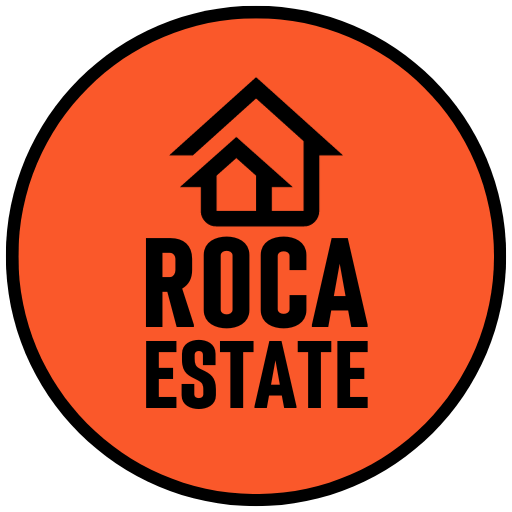In the ever-evolving landscape of global business, industries no longer operate in isolation. The lines that once defined sectors are fading, giving way to a more interconnected and collaborative approach. The real estate market, a pillar of economic growth and personal aspiration, is a prime example of this transformation. Traditionally perceived as a self-contained industry, real estate is now finding its success intertwined with the expertise and cooperation of various other sectors. This shift towards inter-industry collaboration is not merely a passing phase but a progressive movement, signaling a brighter and more inclusive future for the real estate market.
As the complexities of buying and selling properties grow, the need for expertise from diverse fields becomes evident. Legal intricacies, financial considerations, architectural visions, and more now play a pivotal role in every real estate transaction. In this article we will look at the reasons for this change, the benefits of this collaboration, and how the Roca Estate is supporting this idea.
The Changing Landscape of the Real Estate Market

The real estate market, like many other sectors, has undergone significant transformation over the past few decades. The advent of technology, coupled with the rapid pace of globalization, has reshaped how properties are bought and sold. Gone are the days when a simple advertisement or a signboard outside a property would suffice. Today, the process of buying and selling property is a multifaceted endeavor, encompassing digital platforms, virtual tours, and intricate financial mechanisms.
Furthermore, the expectations of modern clients have evolved. They seek more than just a transaction, they desire a comprehensive experience. This includes legal guidance to navigate the complexities of property laws, financial advice to ensure sound investment and architectural insights to visualize the potential of a space. As a result, the real estate market is no longer just about brick and mortar, it’s about providing a holistic service that caters to every facet of a client’s property journey.
In this dynamic environment, the role of real estate agencies has expanded. They are not just facilitators of property transactions but are now collaborators, working in tandem with professionals from various industries. This inter-industry cooperation ensures that clients receive a seamless and efficient service, making their property dreams a reality.
The Power of Partnership

In the modern business ecosystem, partnerships have emerged as a cornerstone of success. For the real estate sector, these collaborations are not just beneficial, they are essential. The intricate process of buying or selling property requires expertise that spans beyond the traditional realms of real estate. By forging partnerships with professionals from various industries, real estate agencies can offer a more comprehensive and efficient service to their clients
Benefits of Inter-industry Cooperation:
- Efficiency: Collaborating with lawyers, notaries, bankers, and architects allows real estate agencies to streamline the property buying and selling process. This integrated approach ensures that clients don’t have to juggle multiple professionals, making the entire process faster and more cohesive.
- Expertise: Each industry brings its unique set of skills and knowledge. For instance, lawyers can guide clients through the legal intricacies of property transactions, while bankers can provide financial advice and loan options. Architects, on the other hand, can offer insights into property design and potential renovations. By partnering with these professionals, real estate agencies ensure that clients benefit from a holistic service.
- Trust: When clients witness multiple industries working in harmony, it instills a sense of trust. They feel reassured knowing that a team of experts from various fields is overseeing their transactions, ensuring every detail is meticulously handled.
Ways Real Estate Agencies Can Collaborate with Other Industries:
- Joint Workshops and Seminars: Real estate agencies can organize events in collaboration with bankers, lawyers, and architects. These events can educate potential clients about the property buying process, legal considerations, financial options, and architectural possibilities.
- Integrated Service Packages: Agencies can offer packages that include services from partnered professionals. For instance, a package could include property viewing, legal consultation, financial advice, and an architectural assessment, providing clients with a one-stop solution.
- Referral Programs: Real estate agencies can establish referral programs with professionals from other industries. For example, a lawyer could refer a client to a real estate agency, and in return, the agency could recommend their clients to that lawyer for legal services.
- Collaborative Marketing Campaigns: By pooling resources, real estate agencies and their partners can launch joint marketing campaigns, highlighting the benefits of their integrated services. This not only broadens their reach but also reinforces the message of collaboration and trust.

As the real estate market continues to transform, the significance of forging strong partnerships remains paramount. Through fostering collaborations across industries, real estate agencies can enhance their offerings, guaranteeing clients an unparalleled service experience.
Roca Estate: Leading the Way in Inter-industry Cooperation
In the bustling realm of real estate, Roca Estate stands out as a beacon of innovation and collaboration. Established as the premier real estate agency in Portugal, our agency has consistently demonstrated its commitment to inter-industry cooperation, recognizing the immense value it brings to both the agency and our clients.
From its inception, Roca Estate was founded with a clear mission: to simplify the journey of owning a dream property in the picturesque landscapes of Portugal. But we understood that this mission goes beyond just showcasing properties. It involves understanding the multifaceted needs of clients, which often intertwine with legal, financial, and architectural realms.
To address these diverse needs, Roca Estate has actively sought partnerships with professionals from various industries. Collaborating with legal experts ensures that every property transaction adheres to the highest standards of compliance and legality. By working closely with financial professionals and bankers, our agency offers its clients a seamless experience, from property selection to securing the best financing options. Furthermore, partnerships with architects have enabled us to provide clients with insights into property potential, design considerations, and renovation opportunities.
What Sets Roca Estate Apart?
- Client-Centric Approach: At Roca Estate we believe that every client is unique. By partnering with legal professionals, bankers, and architects, we ensure that each client’s distinct needs are met.
- Local Market Knowledge: With a deep understanding of Portugal’s real estate market, Roca Estate combines this knowledge with the expertise of our partners to offer unparalleled service.
- Commitment to Excellence: Feedback from Roca Estate’s clients speaks volumes about the dedication of our agency to excellence in real estate.
In a world where collaboration is the key to success, Roca Estate is not just participating in the movement, we leading the way, setting a gold standard for how real estate agencies can thrive through inter-industry cooperation.
How Inter-industry Cooperation Benefits All Parties
| Industry | Benefit to Industry | Benefit to Client |
|---|---|---|
| Real Estate | Streamlined Process | Efficient Service |
| Legal Professionals | Legal Oversight | Peace of Mind |
| Bankers | Financial Integration | Seamless Transactions |
| Architects | Design Input | Tailored Properties |
The Future is Collaborative
The world of business is undergoing a paradigm shift. As industries evolve and intertwine, the traditional silos that once defined sectors are breaking down. This dissolution of boundaries heralds a new era where collaboration, rather than competition, is the driving force behind innovation and growth. The real estate market, with its vast complexities and multifaceted nature, stands as a testament to this transformative trend.
In the past, real estate was often viewed as a standalone industry, with agencies operating independently, focusing solely on property transactions. However, the modern real estate landscape demands a more integrated approach. Clients today seek a holistic experience, one that encompasses not just property selection, but also financial planning, legal guidance, and architectural vision. Meeting these diverse needs requires real estate agencies to collaborate with professionals from various sectors, creating a cohesive ecosystem that benefits all parties involved.
This collaborative future is not just about enhancing the client experience, it’s about reshaping the very fabric of the real estate industry. By fostering inter-industry partnerships, agencies can tap into a wealth of expertise, drive innovation, and unlock new opportunities. Such collaborations also pave the way for shared learning, allowing industries to benefit from each other’s insights and experiences. As we look ahead, it’s clear that the future of real estate is not just about properties, it’s about partnerships, shared visions, and collaborative endeavors that elevate the industry to new heights.
Join Us in Building the Future
In the grand tapestry of the real estate industry, every thread, every partnership, and every collaboration adds depth and richness to the overall picture. As the industry evolves, it beckons forward-thinking professionals from various sectors to come together, weaving a future that’s not only prosperous but also inclusive and innovative. Roca Estate, with its vision of inter-industry cooperation, invites you to be a part of this transformative journey.
By joining hands with Roca Estate, professionals from the legal, financial, and architectural realms can play a pivotal role in shaping the future of real estate. This collaboration is not just about mutual growth, it’s about creating a legacy—a legacy of trust, excellence, and unparalleled service. Together, we can redefine the boundaries of what’s possible, ensuring that every client’s dream of owning a property in the picturesque landscapes of Portugal is realized with precision, care, and expertise. Let’s collaborate, innovate, and build a future that stands as a testament to the power of partnership.
Are you ready to be a part of the future of real estate? Contact luxury real estate agency Roca Estate today and let’s build bridges in business together. Your next chapter in the beautiful landscapes of Portugal begins with us.




